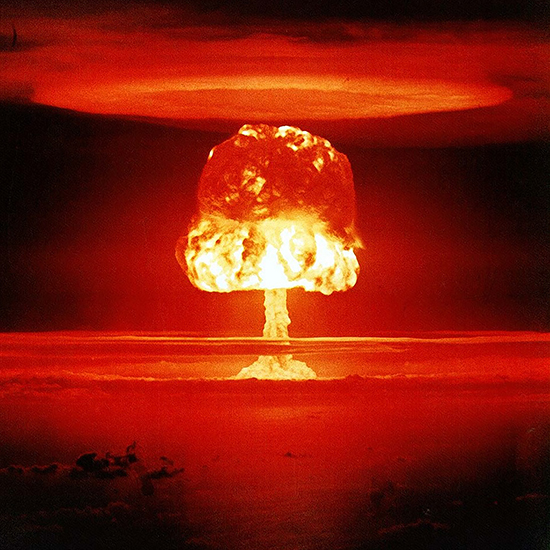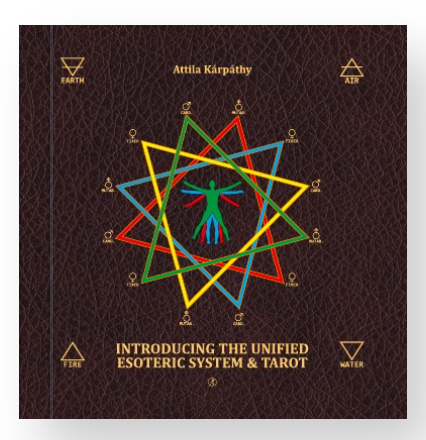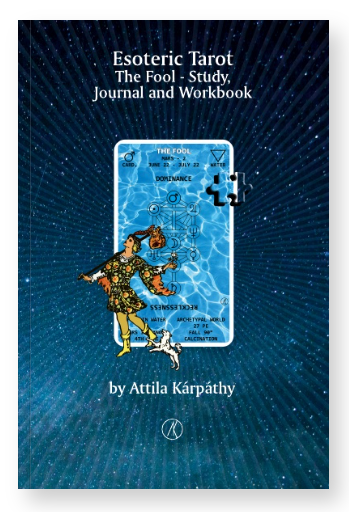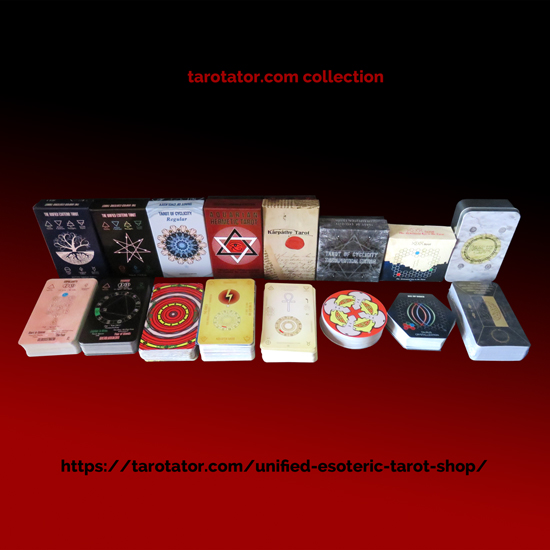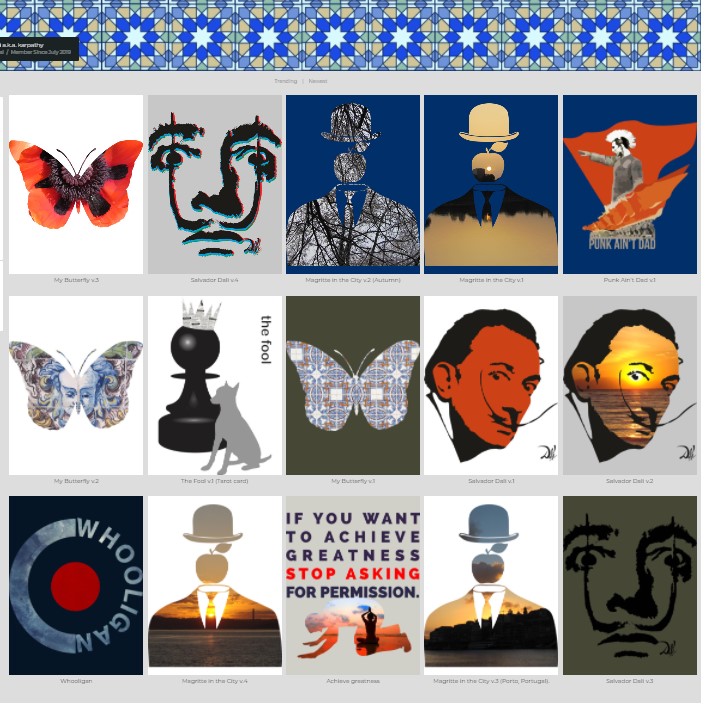“War!
What is it good for?
War!
What is it good for?
Mobilisation
Science
Religion
Domination
Communication
Teleportation”
(Laibach, song War – album NATO, 1994)
I dedicated most of my adult life to finding answers to questions nobody else cared about. There is a Romanian saying: ‘You helped an old lady to cross the road she never wanted to cross’. Well, I often feel this way.
When people ask me what I am doing, and I tell them that my main focus is Tarot, they raise their eyebrows and consider me some kind of lunatic or a crook. Most often, I don’t even bother to explain what it exactly means, and the Tarot is a vehicle for transmitting knowledge, and a complex instrument for studying the universe and human nature.
Humans are the most awkward and inadequate species on this planet. Unlike any other species, we are born completely unprepared and inadequate for surviving.
Human nature is also broken. Everybody knows that, but nobody wants to fix it.
Honestly, the more I try to understand, the more lost I am.
We have been cultivated to obey and indoctrinated to believe blindly whatever is served to us. In the past couple of years, even mentioning peace became a capital sin.
According to several unverified sources, including AI, over the past 2000 years, there has never been a period of complete global peace without any local wars. Conflicts of various scales, ranging from tribal to civil, regional, and international, have occurred continuously throughout recorded history, affecting different parts of the world.
However, there were a few relatively more peaceful periods, without major global or large-scale war.
The Pax Romana (27 BCE – ~180 CE), about 200 years, was a period of relative peace and stability across the Roman Empire, initiated by Emperor Augustus.
The Pax Mongolica (~1250 – ~1350), lasting approximately 100 years, represented a period of relative peace across much of Asia and Eastern Europe under Mongol rule, facilitating trade along the Silk Road.
The Post-Napoleonic Peace (1815–1914), lasting 99 years, was a period that followed the defeat of Napoleon at the Battle of Waterloo. Europe entered a period known as the “Concert of Europe” or Pax Britannica, during which no major European-wide wars broke out until World War I.
The post-World War II peace has lasted approximately 80 years thus far. However, it was anything but a peaceful period.
There has never been a 2,000-year period without any local war. The longest relatively peaceful interval, in terms of the absence of major international conflict, particularly in Europe, is probably the Post-Napoleonic Peace.
However, not even Europe has been at peace in the past 80 years.
The Yugoslav Wars were a series of ethnically driven conflicts that occurred in the Balkans between 1991 and 2001, following the disintegration of the Socialist Federal Republic of Yugoslavia. These wars represented some of the most violent and complex conflicts in post–World War II Europe.
The root causes of the wars lay in longstanding ethnic tensions, economic instability, and growing nationalism within the six republics of Yugoslavia: Bosnia and Herzegovina, Croatia, Macedonia, Montenegro, Serbia, and Slovenia. The conflict began in 1991, when Slovenia and Croatia declared independence. Slovenia’s brief Ten-Day War ended quickly, but the war in Croatia escalated into a bloody struggle between Croats and Serb militias supported by the Yugoslav People’s Army. In 1992, the war expanded to Bosnia and Herzegovina, leading to one of the most tragic and complicated phases of the conflict.
The Bosnian War was probably by far the most brutal, culminating in atrocities such as the Srebrenica massacre in 1995.
NATO conducted an aerial bombing campaign against the Federal Republic of Yugoslavia during the Kosovo War. The air strikes lasted from 24 March 1999 to 10 June 1999. The bombings continued until an agreement was reached that led to the withdrawal of the Yugoslav Army from Kosovo and the establishment of the United Nations Interim Administration Mission in Kosovo, a UN peacekeeping mission.
In total, the Yugoslav Wars resulted in an estimated 130,000–140,000 deaths and millions of refugees.
More recently, Europe has been severely affected by the Ukrainian war.
The Ukrainian War, also known as the Russo-Ukrainian War, began in 2014 and significantly escalated in February 2022 with the Russian invasion of Ukraine. It is the largest conflict in Europe since World War II and has had profound global political, humanitarian, and economic consequences.
As of 2025, the war continues, marked by ongoing battles, diplomatic efforts, and uncertainty. There are a considerable number of casualties on both sides, and millions of Ukrainians have fled the country.
After the horrors of World War II, one would think that humanity would promote global peace and start a total disarmament program globally.
However, humanity once again proved to be uncivilised and viciously destructive.
Currently, around 12,300–12,600 warheads are held by nine nuclear-armed states, with Russia and the U.S. controlling roughly 90% of the world’s nuclear stockpile.
Russia held about 5,449 – 5,580 warheads, the United States 5,044 – 5,277, China 500 – 600, France 290, the United Kingdom 225, India 172 – 180, Pakistan 170, Israel 90, and North Korea approximately 50.
Peace between the nations is bad for the military industry complex and the arms dealers.
However, in these circumstances, we can hardly call ourselves civilised and spiritually developed beings.
Imagine how many good things could have been done with all the money spent on the arsenal expansion and developing more and more deadlier weapons.
According to the latest global estimates, the extreme poverty rate, defined as living on less than $3.00 per day (2021 PPP), was 10.5% in 2022, equivalent to approximately 838 million people.
Around 44 % of the world’s population, some 3.5 billion people, live below the upper-middle-income poverty threshold of $6.85/day.
Multidimensional poverty, which encompasses factors such as housing, education, and health, affects over 1.1 billion people, more than half of whom are children, across 112 countries.
Billions of people worldwide lack access to education and basic healthcare.
Imagine how many schools, theatres, libraries, hospitals, and clinics we could have constructed with the budgets spent on weapons.
As long as even one child on this planet goes to bed hungry, no country should spend a single penny on armaments.
ReArm Europe, for instance, is the worst idea of the century.
The ReArm Europe Plan, also known as Readiness 2030, is an initiative by the European Union aimed at significantly increasing defence spending and enhancing military capabilities in response to security threats, allegedly and particularly from Russia. It proposes over €800 billion in funding to bolster the EU’s defence industry and reduce reliance on external military support, meaning NATO and the USA, while also addressing critical capability gaps within member states’ armed forces.
Can you imagine how many good things could have been done with €800 billion?
If you invest in military capabilities, sooner or later, you will likely find yourself in a war. Weapons will never bring peace, you greedy idiots!
However, we cannot place the blame solely on politicians and corporations. No, my friends, most of those politicians were more or less democratically elected, and they are kept in power by our ignorance. They will continue to get richer while we will be poorer and even die for their amusement, eventually.
I pretty much hate R.E.M., but this song is on my mind right now: it’s the end of the world as we know it… Nope, I don’t feel fine.
#war #peace #civilisation #attilakarpathy #brushvox

